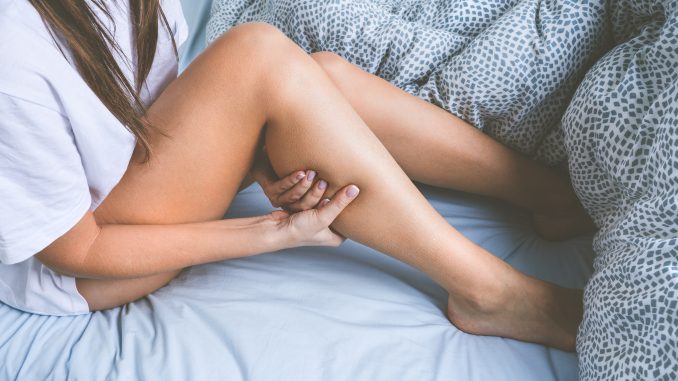
Do you ever experience that sudden, excruciating pain in your legs, disrupting your peaceful slumber? Leg cramps at night are a common occurrence that can leave you sleepless and restless. Understanding the causes behind this discomforting sensation is crucial in finding effective ways to prevent and alleviate leg cramps. In this article, we will explore the reasons why your legs cramp up at night and provide helpful strategies to ensure a good night’s sleep without those unwelcome cramps.
1. Dehydration: The Hidden Culprit
One of the leading causes of leg cramps is dehydration. When your body lacks sufficient fluids, it disrupts the balance of electrolytes and minerals necessary for proper muscle function. To combat this issue, make sure to stay adequately hydrated throughout the day by drinking plenty of water. Additionally, avoid excessive consumption of diuretics like caffeine and alcohol, as they can contribute to dehydration and increase the likelihood of leg cramps.
2. Electrolyte Imbalance and Nutrition
Electrolyte imbalance, particularly a deficiency in potassium, calcium, or magnesium, can trigger leg cramps. These essential minerals play a vital role in muscle contraction and relaxation. To prevent deficiencies, incorporate potassium-rich foods like bananas, spinach, and avocados into your diet. Consuming calcium sources such as dairy products, leafy greens, and fortified foods is also beneficial. Furthermore, magnesium can be obtained from nuts, seeds, legumes, and whole grains.
3. Lack of Stretching and Exercise
A sedentary lifestyle and lack of physical activity can contribute to nocturnal leg cramps. Engaging in regular exercise and stretching can help prevent muscle stiffness and cramping. Focus on exercises that target the leg muscles, such as walking, jogging, cycling, and swimming. Prioritize stretching before bed, especially the calves and hamstrings. Simple stretches like toe touches, calf stretches, and quadriceps stretches can work wonders in preventing leg cramps.
4. Nerve Compression and Restless Leg Syndrome
Sometimes, leg cramps at night can be linked to underlying medical conditions. Nerve compression, often caused by conditions like lumbar spinal stenosis or herniated discs, can lead to cramping. Similarly, restless leg syndrome (RLS) can cause unpleasant sensations in the legs, leading to muscle contractions and cramps. If you suspect an underlying medical condition, it is essential to consult a healthcare professional for an accurate diagnosis and appropriate treatment.
5. Proper Sleep Position and Bedding
The way you position your body during sleep can also affect the occurrence of leg cramps. Avoid sleeping in positions that excessively strain or compress the leg muscles. Opt for a comfortable mattress and supportive pillow that promote proper spinal alignment. Elevating your legs slightly with a pillow under your knees can relieve tension and minimize the risk of cramping. Experiment with different sleeping positions and bedding arrangements to find what works best for you.
6. Heat and Cold Therapy
Applying heat or cold therapy to your legs can provide immediate relief during and after a leg cramp. Heat helps relax the muscles and increase blood circulation, while cold therapy numbs the affected area and reduces inflammation. Experiment with hot water bottles, warm towels, or ice packs to find which method works better for you. Apply the chosen therapy to the cramped muscles for about 15 minutes for maximum benefit.
Conclusion
Experiencing leg cramps at night can be a painful and disruptive ordeal. By understanding the causes behind these cramps and implementing preventative measures, you can significantly reduce their frequency and intensity. Remember to stay hydrated, maintain a balanced diet, incorporate regular exercise and stretching, and optimize your sleep environment.
Share this:
- Click to share on Facebook (Opens in new window)
- Click to share on Twitter (Opens in new window)
- Click to share on WhatsApp (Opens in new window)
- Click to share on Reddit (Opens in new window)
- Click to share on Telegram (Opens in new window)
- Click to share on Pinterest (Opens in new window)
- Click to share on LinkedIn (Opens in new window)